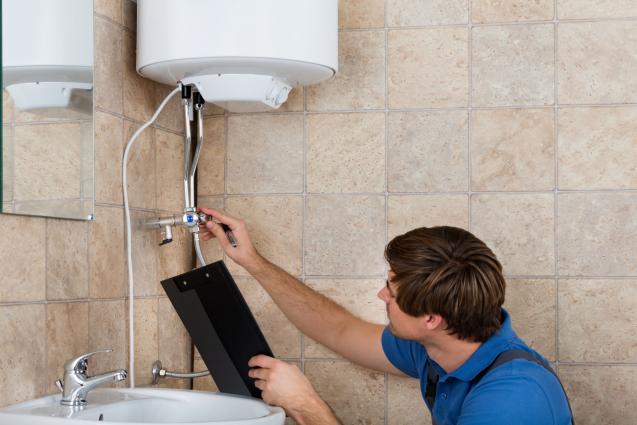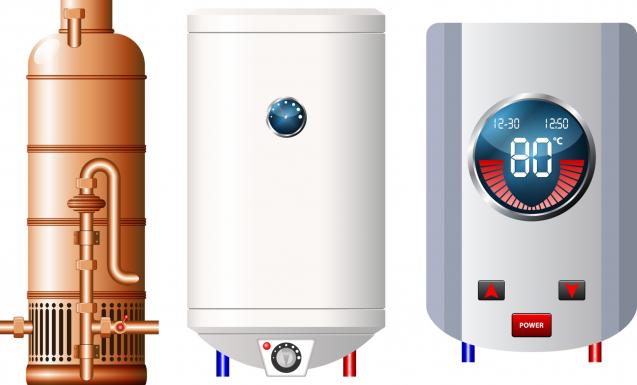
In-Depth Guide to Hot Water System Issues and Effective Solutions
By Brisbane Plumbing & Drainage|October 04, 2023
For most households, a hot water system is not just an appliance; it's a necessity that goes unnoticed until problems creep up. A hot water system ensures a continuous supply of hot water to a home or building. It comprises components that work together to heat water and maintain temperature. From enjoying a soothing hot bath to running a laundry cycle, the importance of a properly functional hot water system is undeniable. This comprehensive guide aims to aid your understanding of common hot water system issues, their potential impact, and effective solutions, including the proper installation of products like your Rheem water heater.
Understanding Your Hot Water System: An Overview
Hot water systems can be categorised into direct and indirect types. Direct systems heat water on demand, like tankless heaters or continuous flow systems. On the other hand, indirect systems store hot water, like storage tank systems. Typically, a hot water system functions by employing either electricity, gas or solar energy to heat water. Through regular maintenance and periodic system checks, you can ensure optimal performance, which can enhance its lifespan and reduce unnecessary energy bills.
Common Hot Water System Issues and Their Symptoms
Understanding the common symptoms of hot water system malfunctions will enable early detection and prompt repairs. One of the obvious issues is an insufficient hot water supply. Does your hot water run out quickly? You may be dealing with inconsistent water temperatures if your hot water fluctuates from hot to cold without reason. Do you notice water pooling around your heater? You likely have a leaking hot water system. Moreover, unusual noises like banging or popping from the system can signal a potential problem as well.
Potential Causes of Hot Water System Issues
Why might your hot water system act up? The culprit could be a faulty thermostat causing inconsistent heating. Accumulated mineral deposits may also lead to reduced system efficiency. Overtime, heating elements can wear out, causing a lack of hot water. Furthermore, internal rusting and corrosion could escalate into a serious problem, even causing leaks.
Step-by-step Guide to Diagnosing Hot Water System Issues
Commence your intervention with basic troubleshooting. Resetting the thermostat or checking the circuit breaker could rectify minor issues. Observing changes in water colour, temperature fluctuation or leaks helps in identifying specific malfunctioning components. Remember, safety first! Always turn off power and water supply while troubleshooting. If the issue persists, it might be prudent to call a professional.
Effective Solutions to Hot Water System Issues
Fixing a faulty thermostat may require replacement or recalibration. If the heating elements are the issue, you may need professional help to replace them. Prevent and fix internal rusting and corrosion by using rust inhibitors or replacing the anode rod. In situations where the system leaks or is beyond repair, you might have to consider system replacement.
The Role of Professional Services in Maintaining Your Hot Water System
There is a reason why professionals exist. They are equipped with the necessary skills and tools to diagnose and repair hot water system issues efficiently and safely. A professional service visit typically entails a complete system inspection, minor repairs, and advice on potential issues. Opting for regular professional maintenance can extend your system's life and efficiency while taking the burden of DIY fixes off your shoulders.
Conclusion
A well-functioning hot water system plays a vital role in ensuring the comfort of your home. Being aware of the common issues, their causes, and solutions can save you from potential hassles and expenses. As the saying goes, prevention is better than cure. Timely maintenance, coupled with professional services when needed, can keep your hot water system performing optimally for years to come. So, take that extra step to care for your hot water system today and enjoy uninterrupted, comforting hot water, all year round.
Understanding Your Hot Water System: An Overview
Hot water systems can be categorised into direct and indirect types. Direct systems heat water on demand, like tankless heaters or continuous flow systems. On the other hand, indirect systems store hot water, like storage tank systems. Typically, a hot water system functions by employing either electricity, gas or solar energy to heat water. Through regular maintenance and periodic system checks, you can ensure optimal performance, which can enhance its lifespan and reduce unnecessary energy bills.
Common Hot Water System Issues and Their Symptoms
Understanding the common symptoms of hot water system malfunctions will enable early detection and prompt repairs. One of the obvious issues is an insufficient hot water supply. Does your hot water run out quickly? You may be dealing with inconsistent water temperatures if your hot water fluctuates from hot to cold without reason. Do you notice water pooling around your heater? You likely have a leaking hot water system. Moreover, unusual noises like banging or popping from the system can signal a potential problem as well.
Potential Causes of Hot Water System Issues
Why might your hot water system act up? The culprit could be a faulty thermostat causing inconsistent heating. Accumulated mineral deposits may also lead to reduced system efficiency. Overtime, heating elements can wear out, causing a lack of hot water. Furthermore, internal rusting and corrosion could escalate into a serious problem, even causing leaks.
Step-by-step Guide to Diagnosing Hot Water System Issues
Commence your intervention with basic troubleshooting. Resetting the thermostat or checking the circuit breaker could rectify minor issues. Observing changes in water colour, temperature fluctuation or leaks helps in identifying specific malfunctioning components. Remember, safety first! Always turn off power and water supply while troubleshooting. If the issue persists, it might be prudent to call a professional.
Effective Solutions to Hot Water System Issues
Fixing a faulty thermostat may require replacement or recalibration. If the heating elements are the issue, you may need professional help to replace them. Prevent and fix internal rusting and corrosion by using rust inhibitors or replacing the anode rod. In situations where the system leaks or is beyond repair, you might have to consider system replacement.
The Role of Professional Services in Maintaining Your Hot Water System
There is a reason why professionals exist. They are equipped with the necessary skills and tools to diagnose and repair hot water system issues efficiently and safely. A professional service visit typically entails a complete system inspection, minor repairs, and advice on potential issues. Opting for regular professional maintenance can extend your system's life and efficiency while taking the burden of DIY fixes off your shoulders.
Conclusion
A well-functioning hot water system plays a vital role in ensuring the comfort of your home. Being aware of the common issues, their causes, and solutions can save you from potential hassles and expenses. As the saying goes, prevention is better than cure. Timely maintenance, coupled with professional services when needed, can keep your hot water system performing optimally for years to come. So, take that extra step to care for your hot water system today and enjoy uninterrupted, comforting hot water, all year round.



